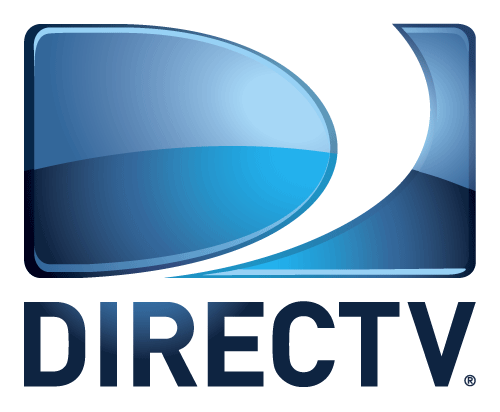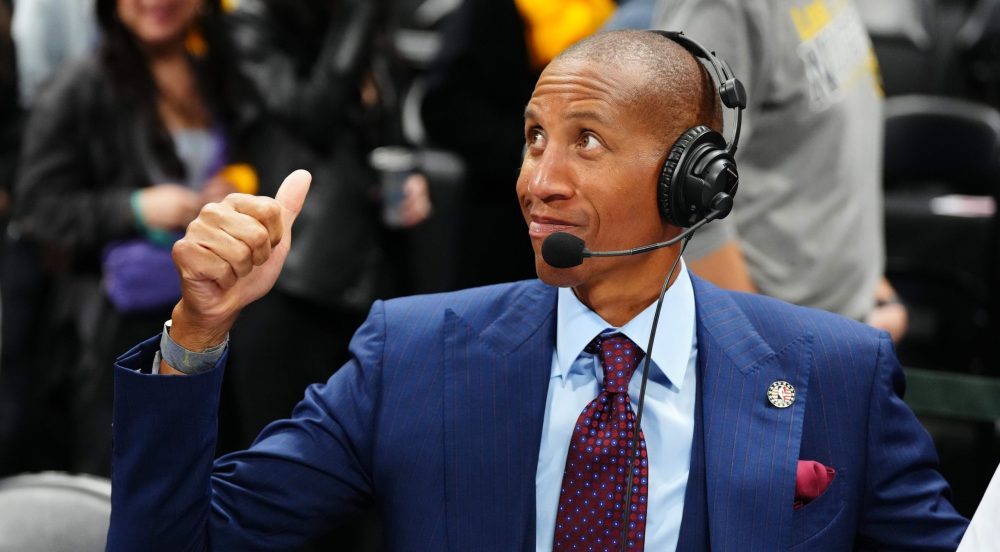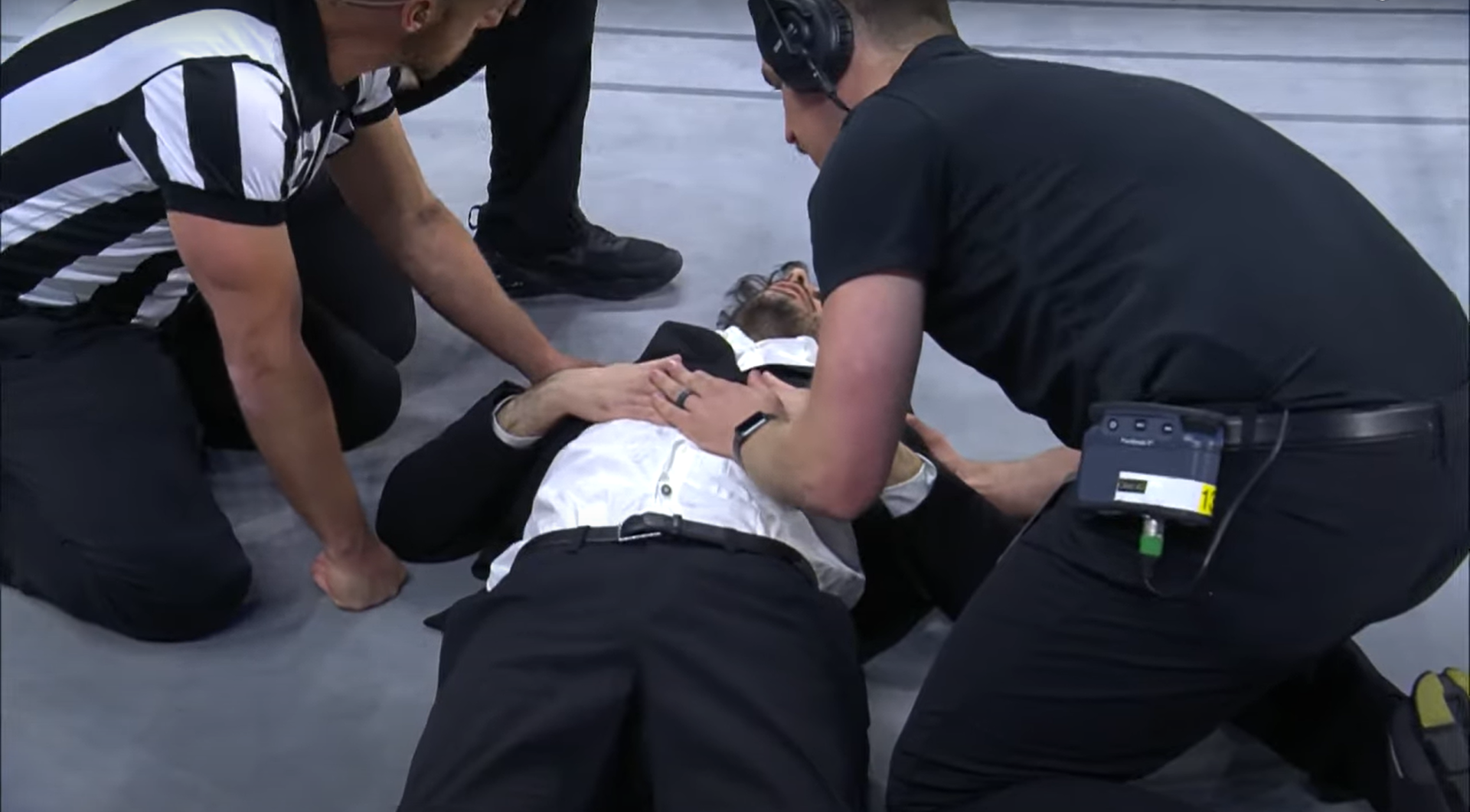On Wednesday, the federal Department of Justice filed an antitrust lawsuit against AT&T’s DirecTV unit, alleging that DirecTV “orchestrated a series of information exchanges with direct competitors that ultimately made consumers less likely to be able to watch their hometown team” by convincing other providers to not pick up Time Warner Cable’s SportsNet LA (which carries the Dodgers). Further details on that lawsuit have since emerged, including exactly what the DoJ accuses DirecTV of doing. From James Rufus Koren of The Los Angeles Times, the key issue at hand is the behavior of DirecTV chief content officer Daniel York:
At the root of the lawsuit is the allegation that Daniel York, DirecTV’s chief content officer, shared information with rival TV carriers during negotiations over the Dodgers channel, corrupting those negotiations and resulting in none of the carriers picking up the channel.
His goal, prosecutors say, was to convince rival carriers that DirecTV would not add the Dodgers channel, making it less likely that rival carriers would do so themselves and ultimately giving all carriers the bargaining power to demand a lower price from Time Warner Cable.
Those exchanges of information with executives at cable providers Cox, Charter and AT&T violated federal antitrust laws, prosecutors said.
In phone calls, voice mails, emails and text messages, prosecutors say York assured counterparts at competing companies that DirecTV would not pick up the Dodgers channel. In some cases, prosecutors said those assurances came just before those counterparts recommended against picking up the channel.
For instance, prosecutors say York and an AT&T executive had a 12-minute phone call in March 2014, one day before that executive told AT&T’s CEO that the company should not pick up the Dodgers channel.
The same executive, prosecutors say, sent York a text message later that month indicating that Time Warner Cable had offered AT&T a new price for the Dodgers channel and asking if the price was in line with offers made to DirecTV.
York and a Charter executive, prosecutors say, not only discussed the Dodgers channel but also shared nonpublic information about negotiations with other parties, including the Weather Channel and Hulu.
Prosecutors say the Charter executive in 2014 left a voice mail for York, promising to prevent the Weather Channel from running ads that attacked DirecTV for blacking out the channel.
A Cox executive testified that he and York had several conversations about the Dodgers channel — including over breakfast in New York in 2013 and on 10 different occasions in early 2014 — and that they promised to tip each other off before either company decided to add the channel, according to the suit.
According to the lawsuit, this started after DirecTV tried to hold out on TWC’s Lakers’ channel ($3.95 per subscriber per month), but eventually caved when competitors picked it up. Prosecutors say that led to this alleged collusion: “Having been burned by this experience, DirecTV approached the Dodgers channel negotiations differently.” What’s interesting is it sounds like the prosecutors have plenty of specific information here, including those text messages, voicemails and testimony from the Cox executive. It’s also notable that while prosecutors say there was illegal information-sharing between DirecTV and AT&T, Cox and Charter, only DirecTV is being charged with a violation of the Sherman Antitrust Act, and the lawsuit calls them the “ringleader.”
This comes at an interesting time for AT&T and DirecTV, as AT&T’s still trying to convince officials that their proposed $85 billion acquisition of Time Warner (which sold off Time Warner Cable back in 2009) is not an anti-competitive or antitrust threat. This wouldn’t necessarily have a specific impact on that move, as Time Warner Cable is no longer part of Time Warner, and Time Warner is no longer a TV provider. Moreover, the alleged moves here from DirecTV happened before AT&T finished buying them (the transaction was announced in May 2014, but only officially completed in July 2015). However, concerns about antitrust are one of the biggest obstacles to the AT&T-Time Warner deal, and these specific allegations of DirecTV acting in collusion with AT&T, Cox and Charter (and Charter actually wound up buying Time Warner Cable earlier this year) may add some substance to those fears.
Of course, these are the prosecutors’ allegations only. AT&T has said in a statement that “We make our carriage decisions independently, legally and only after thorough negotiations with the content owner. We look forward to presenting these facts in court.” We’ll see how it plays out, but the specter of this lawsuit could potentially have a significant impact on the planned AT&T -Time Warner deal.






Comments are closed.